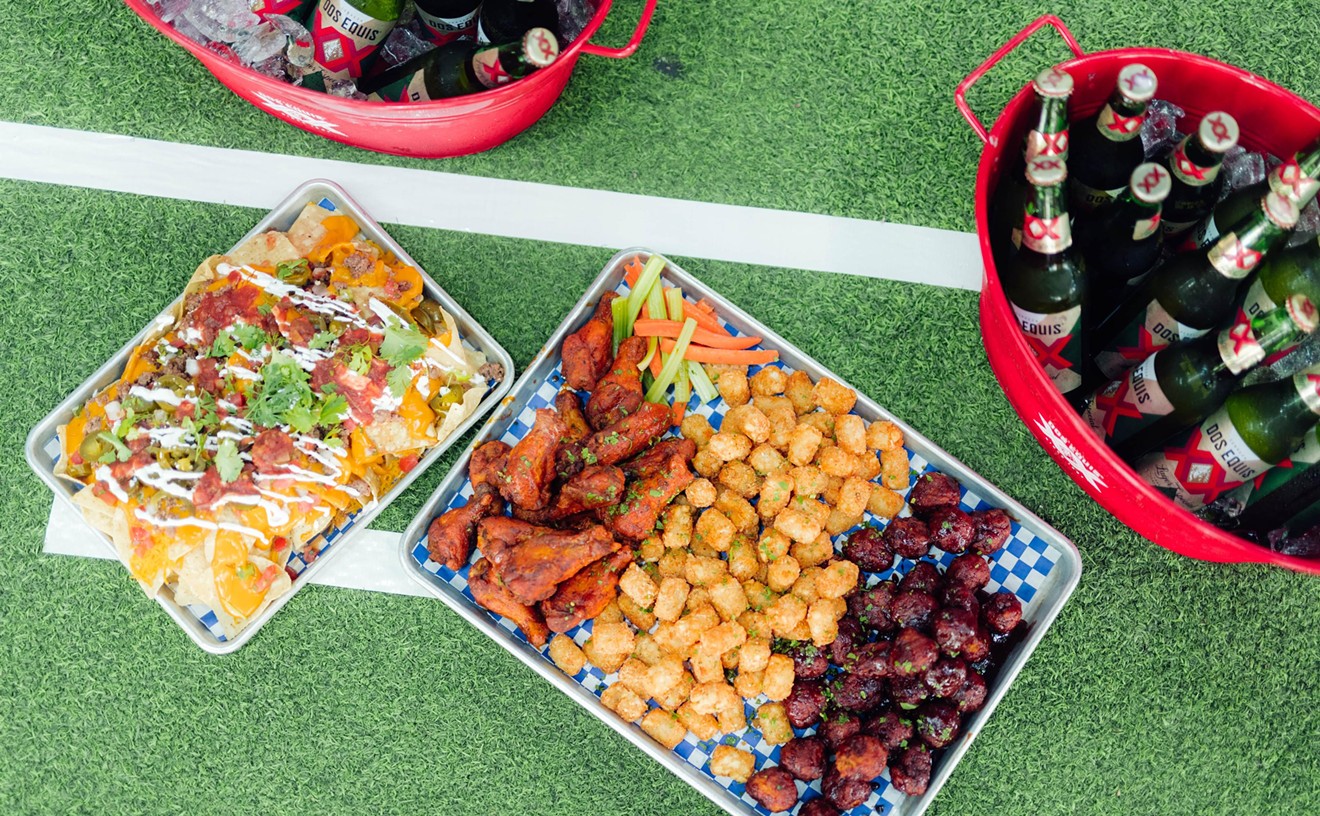Forget about "eye of newt" and "toil and trouble": If it's a Shakespearean cliché, a book reviewer has beat you to it. Of course, some didn't make it past the cover. The magazine Men's Health, for example, gave The Wicca Cookbook (Celestial Arts/Ten Speed Press) a nod as a book the writer never opened. But co-author Tara Seefeldt, a history teacher and graduate student at Arizona State (and, yes, a Wiccan), doesn't seem to mind.
"You have to understand that the Mother has a sense of humor," Seefeldt says, describing ways in which the Goddess, the female energy of the Divine Source, responds to supplications.
Although she's not referring to her experience as a published writer, she could be. When you're a proponent of ideas that most Americans consider wacky, then publicly explore those beliefs in a cookbook, it helps to have Seefeldt's easygoing attitude.
Seefeldt has always liked to cook, and she has been a practicing Wiccan for 12 years. But that didn't make The Wicca Cookbook inevitable. She was drawn into the project by her sister-in-law, Jamie Wood, also a Wiccan and the professional writer responsible for much of the book's elegant prose. The project was a publisher's idea that Wood learned of through literary contacts.
However, having signed up for the job, the authors decided to produce a book that Seefeldt calls "very personal." At the same time, they undertook to dispel misconceptions about Wicca, or "the Old Religion," and its adherents.
"There's really nothing at all to be afraid of," says Seefeldt, who admits that she does have a black cat -- just because she likes cats. "It [Wicca] is mostly just a way of living your life."
To hear Seefeldt tell it, it's a very sensible way of living, at that. Because "no hard and fast rules exist in Wicca," the experience of each believer is different, although most emphasize living in harmony with the natural world and the seasons.
For Seefeldt, who describes herself as a "solitary Wiccan," doing so can be as simple as taking time to appreciate sunshine, or birds singing on the street -- the sort of reflection encouraged by women's magazines, in stories about beating stress. Other activities encouraged by women's magazines -- recycling, car-pooling, walking to work instead of driving -- figure in naturally to the Wiccan way of life.
"Most Wiccans out there are pretty environmentally conscious," Seefeldt says, explaining that a deep respect for the natural world is incompatible with its wholesale destruction. "I mean, would you think of defiling a church?"
Similarly, spell-casting, according to Seefeldt, is less about turning men into toads than requesting help to "banish negativity" in oneself and one's surroundings.
"It's prayer, is what it is," she concludes. "Just prayer. Wiccans believe that whatever you do will return to you three times three times three. This is a religion of responsibility. . . . We don't have many rules, but this is one: 'Do what you will, so long as you harm none.'"
Another misconception, Seefeldt says, is that women dominate the religion. Although Wiccan men and women may choose to emphasize different aspects of the "One, or the Creator," neither its male nor its female essence is seen as unimportant.
Seefeldt's informed, rather common-sense ideas make The Wicca Cookbook a disappointing read for anyone seeking to prepare, say, the blood of Christian babies. (Speaking as a historian, Seefeldt notes that the "witch" as we know it in stories is "a Christian construction of evil. It has nothing to do with paganism at all. If it did, we'd just be fallen Christians. But it [Wicca] is a completely different religion, like Buddhism.")
For those who enjoy more conventional dishes, the book offers a diversity of traditional and innovative recipes -- Southern gumbo, corn bread, lavender lemonade, wild-rose jam.
"We just picked things that we liked," Seefeldt says of recipe selection.
Consequently, although the book has a medieval motif, most of its recipes are contemporary. The Wicca connection comes through the generous use of fresh herbs and seasonal ingredients, the book's feast-based layout (recipes are arranged around pagan holidays), and an emphasis on creative, introspective preparation.
The decision to focus on medieval culture was made with respect to the authors' mostly European heritage. "As a historian, I'm very sensitive to the fact that I can't legitimately talk about Native American traditions, for example," Seefeldt says. "I don't have access to that culture.
"But I do have access to a time in European history when there were still users of magic at all levels of society. . . . That's why we went with a northern European medieval feel to the book."
In their introduction, Seefeldt and Wood write: "Without requiring any formal commitment to Wicca and its beliefs, The Wicca Cookbook offers ways to celebrate and honor the divinity in nature and each of us." But the authors hope that their book will encourage people who are curious about Wicca, yet reluctant to venture into a metaphysical bookstore.
"Because we don't proselytize, it's hard to get the word out," Seefeldt explains. "One thing that people ask me all the time is, 'How do I join?' . . . You don't have to join, you're already a member. You can go and find the Mother any way you want."
With recipes for homemade mead and dandelion wine, it shouldn't be hard to find Her in the kitchen.
Elan Head, a freelance writer, is not a Wiccan, but she does like cats.










